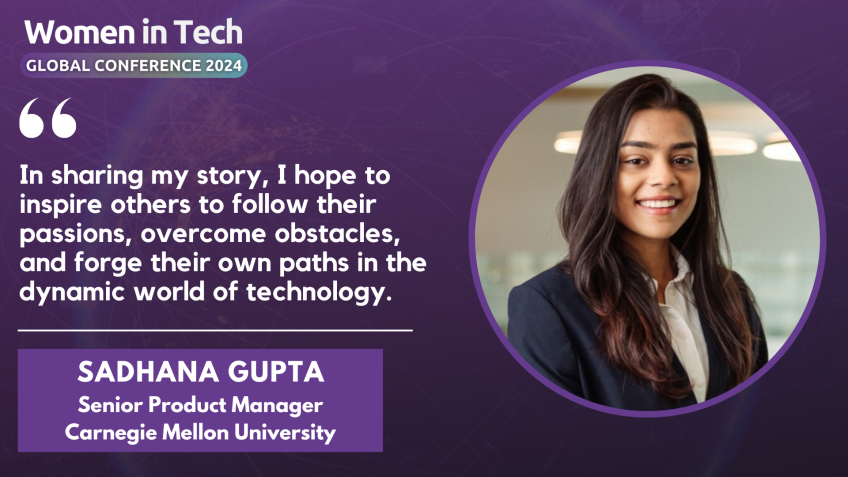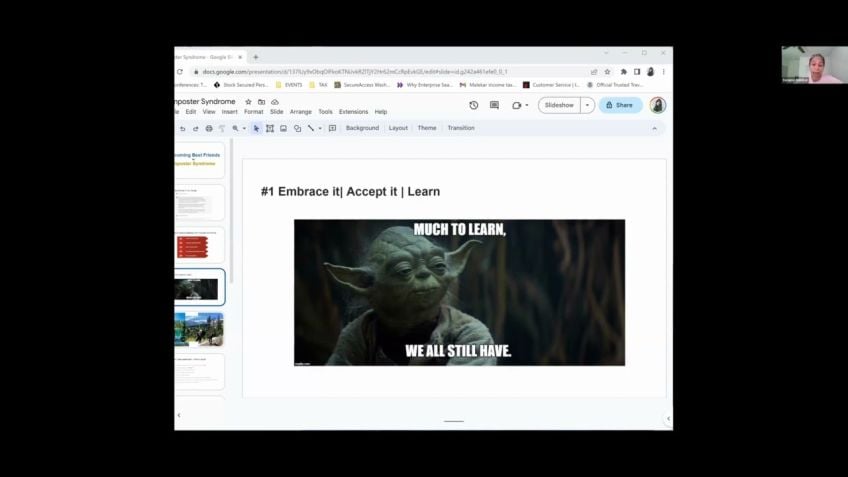Alaina Talboy - Overcoming Imposter Syndrome
Overcoming Impostor Syndrome: A Fresh Perspective on the Issue
By Dr. Elena Talboy
Introduction
Welcome! I am Dr. Elena Talboy, a cognitive scientist, who has devoted more than a decade to researching and understanding the phenomenon known as impostor syndrome. Making its presence felt in my personal and professional life, I aimed to dive deep into the root causes of impostor syndrome and explore methods to overcome it. This article aims to offer a fresh perspective, demystifying this largely misunderstood concept, and providing actionable strategies to combat it.
Understanding Impostor Syndrome
Impostor syndrome is described as doubt in one's abilities and the persistent fear of being flagged as a fraud. These feelings stem from within the individual, often leading people to internalize these perceptions. Common remedies include personal development strategies like coaching, confidence training, therapy, and learning how to lean in. However, it’s crucial to recognize that this condition is not simply an internal ailment; it is a societal and organizational issue deeply rooted in our culture.
Shifting the Blame from the Individual to the Society
In lieu of attacking the individual, we should focus on addressing the societal constructs that breed feelings of impostor syndrome. The narrative needs to shift from ‘you need to change’ to a more empathetic understanding and acknowledgment of the systemic pressures at play.
Representation and Gender Equality in the Workforce
- As of 2021, women make up about half of the U.S. workforce. However, when you delve into the technology sector's gender breakdown, you notice the sharp disparity - women account for only 26% of the global technology workforce. It's evident that the proportion of women to men employees in large tech corporations leaves a lot to be desired.
- Moreover, most women in the technology industry are in support and professional roles, with very few making it to the top echelons. Breaking this glass ceiling is an issue that needs immediate attention and action. Sadly, these discriminatory practices can make employees feel less valuable than their peers, leading to a lack of confidence, engagement, and feelings of being an impostor.
The Impact of Societal Expectations on Imposing Syndrome
Research indicates that individuals tend to feel like an impostor when they’re aware that they are actively defying perceived societal norms. At each nested layer of societal influence — from family to local community to societal institutions — there are implicit rules and expectations regarding gender roles and what is deemed "appropriate" for men and women. It's these unsaid, yet omnipresent societal regulations that we need to question and change.
How Can We Combat Impostor Syndrome?
Although this issue might seem overwhelming due to its deep-rooted societal ties, change is still possible. At an individual level, acknowledging that you are not an impostor can be empowering.
At the societal level, there need to be more conversations about the contribution of women to society and advancements being made by them in various fields. Additionally, we should actively promote equal opportunity, access, treatment, and equitable representation of women across fields.
Conclusion
Deconstructing years of learned behavior and societal norms might seem like an uphill task, but the first step is understanding the root problem. Remember, you are not an impostor — your feelings of inadequacy are not an internal fault but a product of larger societal systems and norms. By challenging these and making conscious efforts to rectify the inequalities, we can move towards a more inclusive society where everyone feels valued and accepted in their roles.
Want to continue the conversation?
Please reach out to me via LinkedIn and Twitter. Remember, you too can play a role in dismantling stereotypes and changing narratives to create equality in the technology sector and beyond.
Video Transcription
All right. So we will go ahead and get started here. So thank you all for coming to my talk today. I am Dr Elena Talboy and I am a cognitive scientist. I started researching imposter syndrome back in 2008 and started publishing on it in 2011.Although this is never my actual area of research, I focused on it because I have personally experienced feeling like an impostor for so long that I wanted to learn about what causes it over the years has led to many conversations with women around the world as I share my personal experience and the methods I use to overcome this syndrome.
So what is this syndrome? The words we use to describe imposter syndrome are all these internally centered or generated from inside the individual. Even the definition of doubting your own abilities and feeling like a fraud indicates that there's something wrong inside the individual who is experiencing these feelings.
You've likely heard some great talks here at this conference about solutions you can use to fix this internally driven issue through means such as coaching, confidence training, learning how to lean in even therapy and these are all well and good and we do need to have some personal responsibility for how we're feeling.
But that said, I wanna stop here for a moment and have you try to set aside what you think, you know about imposter syndrome. I don't want women to keep blaming themselves for feeling like they don't belong, especially in so called male dominated fields like technology. The reality is we live in a society and cultural constraints that set us up to feel like impostors when we're not. And so today is not about the individual aspect of imposters. Today, we're gonna be taking a different approach. So instead of looking at the individual and saying you need to change, we're going to look at some of the organizational and societal components in which impostors is rooted. After that. I'd love for you to take what you learned, connect with me on linkedin, connect with your colleagues and discuss this with them so we can all come together and start changing this narrative. And so with that in mind, I'm actually gonna start over and change the original title of my talk. So, hello, I'm Doctor Elana Cowboy. I'm a cognitive scientist and I am here to tell you I am not an impostor. And if you are listening to this talk, you are not an impostor either. I don't want anyone to walk away from this with the idea that the feelings of imposters are all from internal or inside yourself, not being good enough.
It's just a by-product and what we say and the definitions we use are not adequate to explain why imposters happens. And so instead, I wanna walk you through the different layers of society and workplace that contribute and breed these feelings of imposters, especially for women.
So this is not just talk about overcoming imposter, is this is a talk about identifying and dismantling what directly contributes to women feeling like imposters in technology. So let's start with some facts. As of 2021 women make up about half of the US workforce. And I'm focusing on the US for just a moment because we often see this number and think ah there's definitely some equality happening there. But I want to note that this is binary data. It doesn't include anything about gender breakdowns, ethnicity or even age. And although those are all incredibly valuable and important distinctions to acknowledge and learn about the focus of this talk is just on the comparison of men versus women in technology. So when we take this view and we widen it out, we see that only 39% of the global workforce is composed of women. So this brings me to the first question, I'd like the tat to tackle. Why do you think this number is so low when we look across this global workforce while you're thinking about your answer and typing it in the chat, I'm gonna move and focus on the technology sector of this global workforce where we had 39% of the global workforce. Only 26% of the technology workforce is composed of women. I pulled data from some of the largest tech companies and I just wanna show you the proportion of women versus men employed in these companies.
As you can see to the bottom of the chart, there's a few companies where equality is clearly demonstrated in the workforce at that 50% line. However, there's also some rather surprising findings here as well. Many of the large household name companies in technology are still very far away from equitable representation. And this is a reminder we're only looking at the binary separation of men and women. When you add in things like race or ethnicity, this divide becomes even more pronounced.
And so at the organizational, there's still a lot of work that needs to be done to create equitable representation between the sexes. But representation happens at more than just the organizational level. There are also layers of representation with each individual company as well.
When we go from looking at the overall organization and dig into the various roles women can and do hold in technology. What we find is that the bulk of women are in these support and professional roles towards the bottom of the organizational hierarchy. As you go up the hierarchy and the management up to the CEO, you see this huge drop off of women represented in each of the roles. A Donica Shaw gave a great talk on Tuesday about glass ceilings and how to break through them and get into these upper hierarchies and companies. But I want to add on another question for you to consider in the chat, why do women have glass ceilings to begin with? What is limiting women from obtaining these roles, especially within technology? And so at this point, you may be asking yourself, why are we talking about representation and talk about imposter is why are you bringing up the number of women in each role in the corporate hierarchy?
And I racked my brain for days trying to figure out how to present this slide so many different ways. And eventually it came down to just doing an image search for job titles and the results I'm gonna show you are a direct view into why representation matters and why it is a core component that creates feelings of imposters. So let's take a look at what happens when you search for it worker. What do you notice about this slide? Because the first thing I noticed is that all nine images include men and predominantly focus on men. So now let's take a look at the search result for administrative assistant again, what do you notice all nine images include women even four out of the five icons up above with the additional search options are of women. Representation is necessary because what you see is what creates the expectations for the person who fills the role when you go against those expectations, people treat you differently whether they're aware of it or not. In traditionally male documented occupations like technology, female and ethnic minority employees are often perceived and treated differently. They're sought out less often for advice. They might not be included in work related discussions.
Managers may even go so far as to take a pet project that they started that is taking off and gaining traction and hand it over to their more stereotypically accepted coworker. These sometimes benign and sometimes overt discriminatory behaviors can communicate to these employees that their ideas, their knowledge and their insights are less valuable than that of their peers. And all of this contributes to issues and confidence engagement at work and feeling like you don't belong or you were given the job by chance. All of these are feelings of imposters as we become aware of these stigmas that we're going against. And as we realize we are not the expected default, we start to feel more and more like an impostor. The awareness of these stigmas comes from many different sources. So today, I'm gonna use ecological theory to explain the different layers of influence. Let's start with the central focus of all the other approaches you've probably seen and heard regarding imposter syndrome. This is the individual, this layer is the person who experiences imposter is in this circle, they have their own personal beliefs, their values, their thoughts, their feelings and actions.
All of this is within the person's individual control to change, modify and update as needed. The individual exists inside of what we call the micros systems. This is the immediate social setting in which your individual is actively involved, family, friends, classmates, colleagues, your peers, all of the influence of this group happens in this microsystems surrounding the micro systems is what we call the exos systems. Here is where we have this larger community, schools, health agencies, mass media, our employers are all represented inside this sphere. There are decisions that happen at this level that directly impact us as individuals, but don't directly involve us in the decision making process.
Finally surrounding all of these different layers we have what's called the macrosystem. This is more global thinking. So think really big here, nationality, culture, society, religion, if you live in a religious society, all of that is represented in the micros systems, political systems and economics are also included here. This sphere is the blueprint that defines and organizes all of the other layers that are nested within it. So why do all these layers matter when we're talking about impostors? Research published just as recently as a few months ago suggests that people tend to feel like an impostor when they are in a situation in which they are aware that they are actively going against perceived expectations. And so anytime there's a stigma around gender roles and predefined beliefs about what women and men should and should not do. That person is aware of those stigmas and they are likely to feel imposters. So let's break that down at each of these levels. I'm gonna leave the individual bubble as it stands because how we internalize the beliefs of these larger circles really matters. But first, you have to be aware of what's happening in these larger circles before you can change your own thoughts and beliefs.
The micro systems is our earliest and longest running engrave of what's expected, accepted and ok, for women versus men, think about when you were young. Did you personally or maybe have friends who pointed out the toy soldiers were for boys and barbies were for girls. Did you have any family members that were against boys playing dress up or girls playing in the mud? Let's extend that out a little bit. What household chores did you have growing up? Did you wash the dishes and fold laundry? Did you take out the trash and mow the lawn? When you think about these of chores, do you inherently assign a gender role to it without really thinking about where that idea came from? When we look further at the exo systems where decisions are made that affect the individual, but don't necessarily involve the individual in that decision making process. We start to see some really troubling extensions of this micros systems. So now where expectations were reinforced locally, we get these systemic rules about what women can and cannot do everything from career guidance to school and work dress codes, health care systems and their complete neglect of women's health issues. Medical research has historically used white middle class men as the marker for what is considered to be good health. This completely negates women and their experiences as they have entirely different biological sets and needs um in textbooks that we use to teach our Children.
And our generation, men outnumber women 18 to 1 for images and they outnumber women 3 to 1 for examples and accomplishments even going so far as dating expectations and autonomy over ourselves. How many times have women been told to defer and deter and do whatever it takes to make their partner happy? All of these issues are decided for the individual but without the individual consent. And this happens because we exist within this macrosystem which was systematically built for and maintained predominantly by men, for men's needs. Everything from what degree paths are available in college. If you're even allowed to go to college, what supports are in place to ensure success and how the default mail is. The comparison to always keep in mind. Women are told and shown in so many ways that they are the exception rather than the expected, which all indicates that women should feel like impostors. Although this talk focuses on women, this is something that men can also experience these societal rules and expectations lead to stigmas about what different groups of people should and should not do.
And it's awareness of these stigmas while we're going against the expectations that cause a person to feel like an impostor. And so men can also experience these exact same feelings. So now thinking about technology and the technology sector here, what expectations do you assign for the gender composition of this field? How many women do you expect to be in those higher organizational roles? And where does that belief come from? By focusing on the roots of these beliefs, we can start to undo the damage and start creating these really equitable opportunities for access everyone. So clearly, there's a lot that contributes to how people learn and feel about their role in the workplace in the larger society as well as the knowledge of what is or is not expected. This entire conference is dedicated to women in technology. And over the last three days, I've talked to so many of you and spoken about how you feel like you're going against the expectations. You're fighting an uphill battle. You've said that being a woman in technology is overwhelming like you don't belong and you got here by chance.
And all of these different feelings and anxieties are what we call imposters. This is the result of years of living inside these different systems with the awareness of expectations created for women but not necessarily by women. What I have described is a systemic institutional problem with this larger view in mind, impostors can feel like a monumental problem that we can never solve. How can we individually overcome, feeling like an impostor when there's so many layers that are causing it? And at the same time, what can we do to help each other overcome these feelings as well? It may seem impossible but I promise you it's not, it will take time and effort and energy, but it can be accomplished. And I'm gonna go through a couple different things we can do to start, I'll start again with the individual and this is something I want you to do. I want you to grab a sheet of paper, grab a big marker and I want you to write on a piece of paper. I am not an impostor because you're not, you have personal value. You were hired into your role for a reason and you can do your job, you can do your job. Well, women belong in technology just as much as they belong in every other industry we have at the micros systems.
When we're talking with friends and family, we need to bring in more female role models. We need to make space for women. We need to openly discuss how women contribute to society and advance it. And this is the part that might involve some active work. If someone brings up a male role model and you don't know of a female equivalent. You might need to do some research to find one. Luckily, there are literally billions of women in the world go seek out and find one of them and then talk about what they're doing and what they've accomplished. What are some great qualities that you see in them and then turn around and look at yourself. What are you doing? What have you accomplished that just a few years ago, you never thought would have been possible. How far have you come in your career progression? Take what you've learned and consider mentoring women who come after you seek out the opportunities to speak to others about the challenges you've faced along your path. Be the representation that you needed. When you were in your first role at the exo system, the place where decisions are made for us, but not necessarily by us is a little bit harder, but again, not impossible. Community change can happen after individual microsystems build.
But it can also be nudged along by speaking out for equal opportunity, access and treatment. I wanna see women represented not just in technology, but in medicine, education, leadership. Every single place that we see the default mail. Finally, there's the macrosystem. This is the area where we need the largest shift of all, but that will only come when each of the nested layers starts to change. Society has to shift and recognize women as a truly equal portion of the population. It's not that men are worse than women and it's not that women are not as good as men. It should be that men and women are equal in many ways and treated equally. Women make up literally half the population and yet represent only 26% of the global technology workforce. From the top down. The prevailing male leadership needs to recognize that women are also great leaders and can enact great change. So with that, I wanna say thank you for coming today.
I hope you've taken something valuable from this conversation and share it with your network and please reach out and connect with me on linkedin and visit my website or join me on Twitter. I am very happy to continue this conversation. So I'll go ahead and take a look at the chat and see we got some comments. Hey, oh, this is awesome. Thank you all. Um my issue right now is I don't feel good about where I'm at professionally. It's very discouraging and hard for me to be thankful for all the great things I do have. Oh, I feel you on that one. I do. Um It is really hard to recognize and be appreciative. And what I do to help myself is I stop comparing myself to my peers. And instead I try to look back to where I was five years ago versus where I was 10 years ago. And I try to recognize the growth that I have made personally. And if that still causes me problems, and I'm not happy in my role, that's when I start to sit down and think about what would make me happy and writing it down on paper can be really helpful. So I hope that helps. All right, that is my time for today. Thank you so much for joining me. It has been so great presenting this work to you and I do hope you reach out and connect on linkedin and on Twitter. So have a great day.





